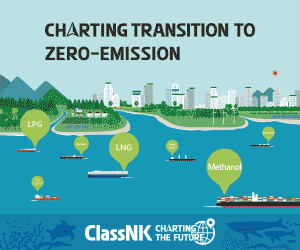With new MLC amendments now in force and more on the horizon, as well as intensified inspection efforts and landmark wage agreements, the international community is sending a clear signal: seafarers matter.
However, regulatory change must be matched by robust enforcement and global cooperation. The next challenge lies not in policy development, but in translating these standards into tangible improvements aboard every ship worldwide.
1. MLC 2006 amendments enter into force
The latest amendments to the MLC, 2006, adopted at the ILO’s 110th Session in 2022, came into effect on 23 December 2024. These amendments address several critical areas:
- Recruitment and placement: Stricter oversight to ensure fair, transparent, and ethical recruitment processes.
- Repatriation: Reinforced provisions to ensure timely and cost-free repatriation at contract end or in cases of distress.
- Recreational facilities: Expanded access to internet connectivity onboard and in ports, supporting mental health and communication with families.
- Food and catering: Improved requirements for food quality, hygiene, and catering conditions.
- Medical disembarkation: Obligation for immediate disembarkation of seafarers in need of urgent medical care.
2. Port State Control Campaign reveals crew rights gaps
From 1 September to 30 November 2024, the Paris and Tokyo MoUs jointly launched a Concentrated Inspection Campaign (CIC) on Seafarer Employment Agreements (SEAs) and crew wages. Other regional MoUs also joined the effort.
Tokyo MoU reported findings from 8,134 inspections, where:
- 16% of CIC-related deficiencies involved missing or unsigned SEAs.
- 28% related to crew not being able to access information about their employment terms.
The Black Sea MoU revealed:
- 42.2% of deficiencies were due to the absence of signed SEAs.
- 24.4% involved wage delays exceeding monthly intervals.
3. Abandonment cases highlight ongoing vulnerabilities
In 2024, 312 cases of abandonment were reported globally, affecting 3,133 seafarers on 282 vessels. 58% of these cases involved ships flying flags of States party to the MLC, 2006 and the 2014 amendments, a decrease compared to 2023.
While this drop is a positive trend, the sheer number of abandonment cases signals the urgent need for better safeguards, particularly around financial security and enforcement of abandonment insurance provisions.
4. Seafarers recognized as ‘Key Workers’ in ILO Instruments
In a historic decision at the ILO’s Special Tripartite Committee on the MLC, held from 7–11 April 2025, governments, shipowners, and unions reached an agreement to officially recognize seafarers as ‘key workers’ under international labour law. This recognition, the first in any ILO instrument, reflects the indispensable role of seafarers in sustaining global supply chains and ensures enhanced protection during global emergencies.
5. New minimum wage agreement
The Joint Maritime Commission (JMC), during its Subcommittee on Wages of Seafarers meeting in April 2025, agreed on a new minimum wage schedule:
- US$690/month from 1 January 2026
- US$704/month from 1 January 2027
- US$715/month from 1 January 2028
6. Next wave of MLC amendments coming in 2027
At the April 2025 meeting of the MLC’s Special Tripartite Committee, additional amendments were adopted and are scheduled to take effect in 2027.
These include:
- Repatriation (Standard A2.5.1) – Clarified responsibilities and improved access to return arrangements.
- Shore Leave (Standard A2.4) – Reinforced rights to shore leave for rest and mental well-being.
- Investigation of Marine Casualties (New provision) – Enhanced reporting and accountability for maritime accidents.
- Onboard Complaints Procedures – Strengthened frameworks for addressing grievances.
- Shipboard Violence and Harassment (ILO23) – New standards to prevent sexual harassment, bullying, and assault at sea.

































































